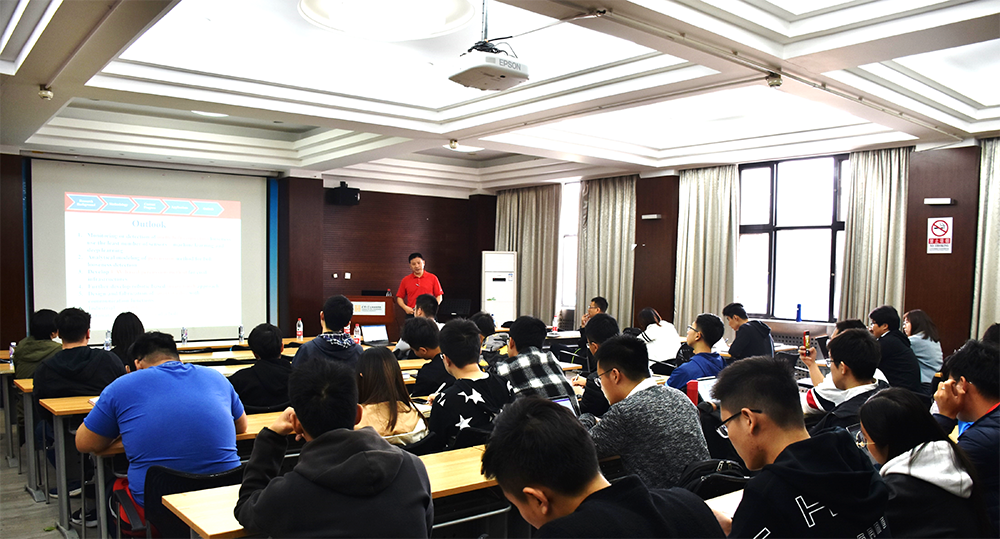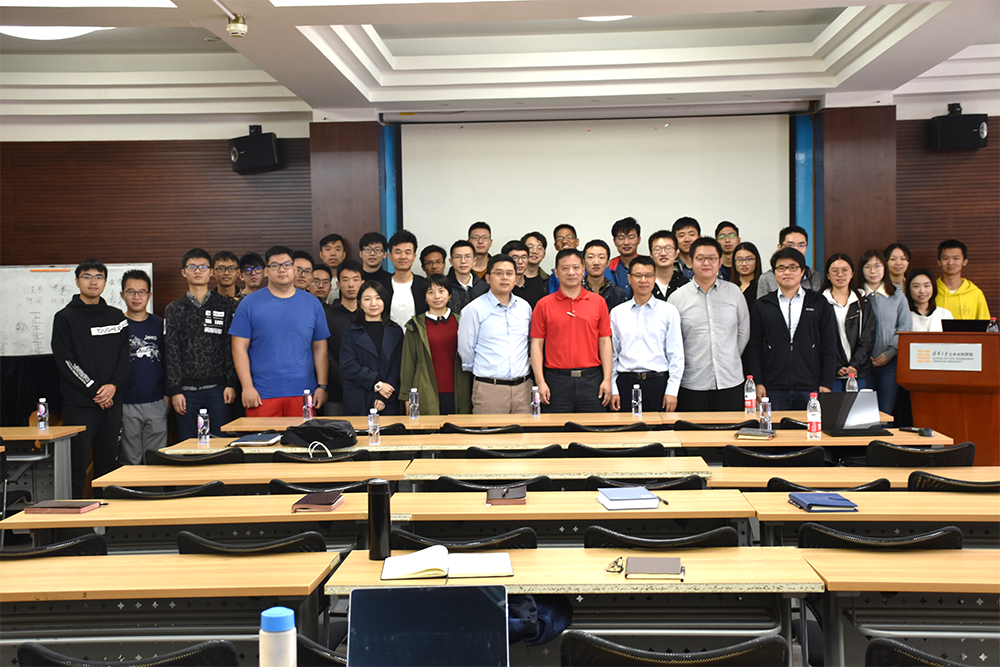Prof. Gangbing Song from University of Houston visited Department of Civil Engineering on October 10th, Thursday. Prof. Song gave a lecture titled Connection Monitoring Using Piezoceramic Transducers. Prof. Peng Pan, Prof. Xinzheng Lu and Special Researcher Xin Nie and more than 50 teachers and students from Tsinghua University participated in the lecture.In this lecture, Prof. Gangbing Song reported his recent innovative research in connection monitoring using piezoceramic transducers and applications to civil engineering. The talk first reviewed the importance of connection monitoring and briefly surveyed the existing literature. An introduction to the basic concept of piezoelectric effect and piezoceramic transducers was then presented.

Active sensing approach using piezoceramic transducers and its practical application were discussed in detail. Prof. Gangbing Song also explained the methodology of the time-reversal and wavelet packet analysis based data analysis approach for structural health monitoring. Prof. Gangbing Song introduced the successful applications of connection monitoring include bolt loosening monitoring and pre-load monitoring of rock bolts. In addition, connection monitoring using percussion, vision, and touch-based approaches were also exhibited. In the end, Prof. Gangbing briefly explained the under-going projects in this research team from the Smart Materials and Structures Laboratory at the University of Houston
After the lecture, the audiences and Prof. Gangbing Song have discussed the application of piezoceramic transducers based connection monitoring techniques. Prof. Gangbing Song answered the questions from the students and made comprehensive responses.

Prof. Gangbing Song is the founding director of the smart materials and structures laboratory and a professor of mechanical engineering, civil and environmental engineering, and electrical & computer engineering at the University of Houston. Prof. Song's academic interests include smart materials and structures, adaptive control, robust control, dynamics, robotics and friction compensation.
Prof. Song is a recipient of the NSF CAREER award in 2001. Prof. Song received his Ph.D. and MS degrees from the Department of Mechanical Engineering at Columbia University in the City of New York in 1995 and 1991, respectively. Prof. Song received his B.S. degree in 1989 from Zhejiang University, P.R.China. He has expertise in smart materials and structures, structural vibration control, piezoceramics, ultrasonic transducers, structural health monitoring and damage detection. He has developed two new courses in smart materials and published more than 500 papers, including 300 peer reviewed journal articles. Prof. Song is also an inventor or co-inventor of 19 US patents and 11 pending patents. He has received research funding in smart materials and related research from NSF, DoE, NASA, Department of Education, Texas Higher Education Board, TSGC (Texas Space Grant Consortium), UTMB (University of Texas Medical Branch), OSGC (Ohio Space Grant Consortium), OAI (Ohio Aerospace Institute), ODoT (Ohio Department of Transportation), HP, OptiSolar, GE, and Cameron. In addition to his research effort, Prof. Song has passion in improving teaching using technology. He is a leader in internet enabled remote experiment/laboratory and a pioneer in systematically implementing remote experiments in engineering education. He received the prestigious Outstanding Technical Contribution Award from the Aerospace Division of ASCE, the Excellence in Research & Scholarship Award at Full Professor Level from UH, the Celebrating Excellence Award for Excellence in Education from ISA (International Society of Automation), the IEEE Educational Activities Board Meritorious Achievement Award in Inal Education, among others. Prof. Song is a member of ASCE, ASME, and IEEE. Prof. Song served as the General Chair of the Earth and Space Conference 2010, Aerospace Division, ASCE.